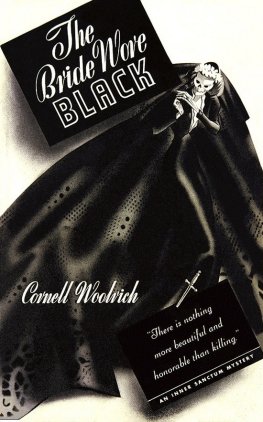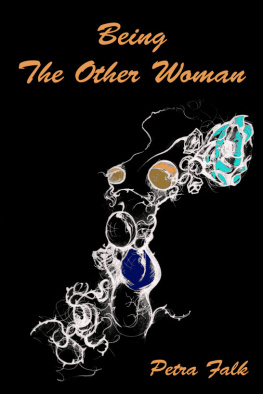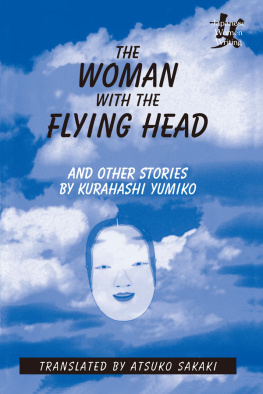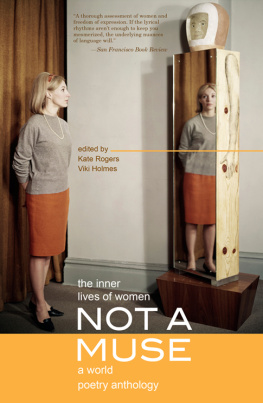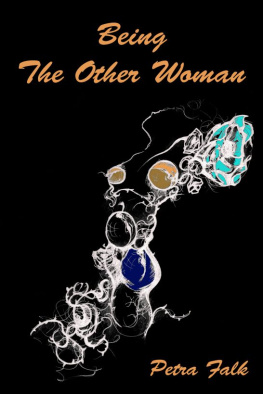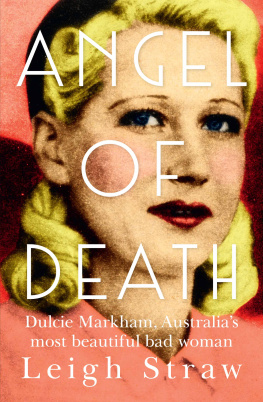Thank you for downloading this Touchstone eBook.
Join our mailing list and get updates on new releases, deals, bonus content and other great books from Touchstone and Simon & Schuster.
C LICK H ERE T O S IGN U P
or visit us online to sign up at
eBookNews.SimonandSchuster.com

Touchstone
An Imprint of Simon & Schuster, Inc.
1230 Avenue of the Americas
New York, NY 10020
www.SimonandSchuster.com
Copyright 2016 by Paul Brinkley-Rogers
Originally published in 2016 in Great Britain by Pan Macmillan
Sonnet XVII from 100 Love Sonnets : Cien sonetos de amor by Pablo Neruda, translated by Stephen Tapscott, on , is reproduced by permission of the University of Texas Press. Copyright Pablo Neruda 1959 and Fundacin Pablo Neruda, Copyright 1986 by the University of Texas Press.
All rights reserved, including the right to reproduce this book or portions thereof in any form whatsoever. For information, address Touchstone Subsidiary Rights Department, 1230 Avenue of the Americas, New York, NY 10020.
First Touchstone hardcover edition August 2016
TOUCHSTONE and colophon are registered trademarks of Simon & Schuster, Inc.
For information about special discounts for bulk purchases, please contact Simon & Schuster Special Sales at 1-866-506-1949 or .
The Simon & Schuster Speakers Bureau can bring authors to your live event. For more information or to book an event, contact the Simon & Schuster Speakers Bureau at 866-248-3049 or visit our website at www.simonspeakers.com.
Interior design by Kyle Kabel
Jacket design by Cherlynne Li and Laura Klynstra
Front jacket photograph of Makiko Parsons by Tojo Studio
Back jacket photograph by Jose Azel/Aurora Photos
ISBN 978-1-5011-5125-5
ISBN 978-1-5011-5127-9 (ebook)
This story is dedicated to those Japanese women from all walks of life who with grace, warmth, and kindness helped Japan rise to new greatness after the disaster of World War II.
C ONTENTS
P ROLOGUE
In the private world of a sweetheart I once had there was a secret valley, much like Shangri-La. She told me that in that valley her family lived happily and all her lost friends waited for her, their faces happy. Her youthful secrets were there, locked in the ice and snow that ringed her paradise. This imaginary valley was not in Tibet. It was not in Japan. It was somewhere in vast landlocked Manchuria in northern China. It was there that Kaji Yukiko was born. She knew she would never see it again.
Yukiko was almost a woman when she fled from Harbin, a sophisticated city of Manchuria. Japan surrendered in September 1945, its puppet state in Manchuria was abandoned, and massive Soviet forces moved in, together with vengeful Chinese guerrillas, forcing the 1.7 million Japanese colonists there to flee for their lives. Repatriated, after many hardships, back to Japan, Yukiko became the ultimate outsider in a homeland she did not know. Tall, beautiful, poised, ferociously curious, gifted in languages including Russian, Mandarin, Japanese, and English, she became a plaything of Hiroshima criminals and wealthy businessmen. But, finally, one terrible day, she ran away. In her chest of drawers, on top of her favorite books of poetry, she kept a short sworda tanto shira wrapped in deep violet silk, for the inevitable day the gangsters came for her.
Her past was catching up with her when I met her. She had created a new private world around her interests in literature and music. But she desperately needed someone to confide in, someone to love. She had lost everyone and everything she loved. For her, love had no future.
I was an outsider too: a young English kid who had enlisted in the US Navy. I was nineteen. The year was 1959. Yukiko was thirty-one when she picked me out of the crowd of sailors in the White Rose, the bar in the seaport of Yokosuka where she worked. She walked up to me with a tired smile and said, Hello. I was so inexperienced and tongue-tied I did not know what to say. I was focused completely on how near she was to me and how her eyes were focused only on me. I still remember the mix of fragrance and heat, and it still has the same effect on my aging body as it did then when I was young.
What is that book in your hand? she asked, in the sort of delicately phrased English that foreigners sometimes speak, unaware that they are putting native speakers to shame.
It is poetry, I said, my face red.
And who is that poet?
I dont know if you know him. It is Dylan Thomas, the favorite of many young men.
She looked at me quickly and in disbelief, not as if I were a fool, or clever, but as if I were a blank sheet of paper on which she could write. Oh yes, she said brightly. Mr. Dylan Thomas. The wild man. The free man. I envy him. He once wrote to a woman, Poetry may not appeal to the intelligent mind more than to the unintelligent. Isnt that wonderful! Yes. Lets go! Lets talk about that.
I looked around the bar. There were about thirty sailors like me, dressed in their white summer uniforms, some drunk, some loud, some sitting cheek to cheek with girls in bright glittery gowns. I could not imagine a discussion like this one was really happening. It was like some kind of dream. And yet here was this intimidating woman, dressed entirely in black, asking me, How old are you? and saying, when I answered, Come with me, sailor boy. Come on!
She told me I was without a doubt the first man in the history of the US Navy who dared to enter a Japanese country-and-western bar with a book of poetry in his hands.
You may need a friend, she said. Sailors do not read verse. Someone might pick a fight with you because you carry that book. You are not normal, she added, in a kindly manner.
Thus began an unfinished romance that was also a friendship. It started right there, in a darkened corner booth upholstered in black vinyl as if it were the backseat in a teenagers Chevy. As I have grown into my seventies, I have come to accept that this romance is still going on. Even now it haunts me. It survives, bobbing up and down on the surface of my life, which has had its share of disappointments. At times it becomes spectral, and now it is compelling me to write about what happened in the middle months of 1959. I hear that voice again, full of excitement and anticipation: Come on! Come on!
But this is not a ghost story. This is a story about a real young manmyselfand a real woman. It was Yukiko who stripped illusions from the realities of life and showed me what it takes to be a man. It was her duty, she said, to educate me in poetry, writing, language, and opera, and to familiarize me with films from the golden age of Japanese cinema and those moody songs about broken hearts known as enka . Her actions allowed me to appreciate the importance of loyalty, honor, respect, and courage.
She urged me to live life without regret: to live a life without love if need be.
She predicted with a great deal of conviction in her long letters that I would become a writer and said she knew she would read about me someday. She spent hours typing those letters as if they were manuscripts, infusing them with poetry from forgotten ages and those tough enka lyricsabout hopeless love, two-timing men, abandoned women, drunken nights, lost innocence, futile longingthat might as well have been written about her own struggle to survive.
She told me she would always remember what we had shared together after I sailed away forever. That inevitable day was coming. I could not stay. If I had jumped ship, I would have ended up in jail. She asked me many, many times to promise that I would never forget her. She asked for that in her letters. She asked me in person, staring at me with an intensity that I, a mere boy, did not understand but that I appreciate now. I have not forgotten her.
Next page

